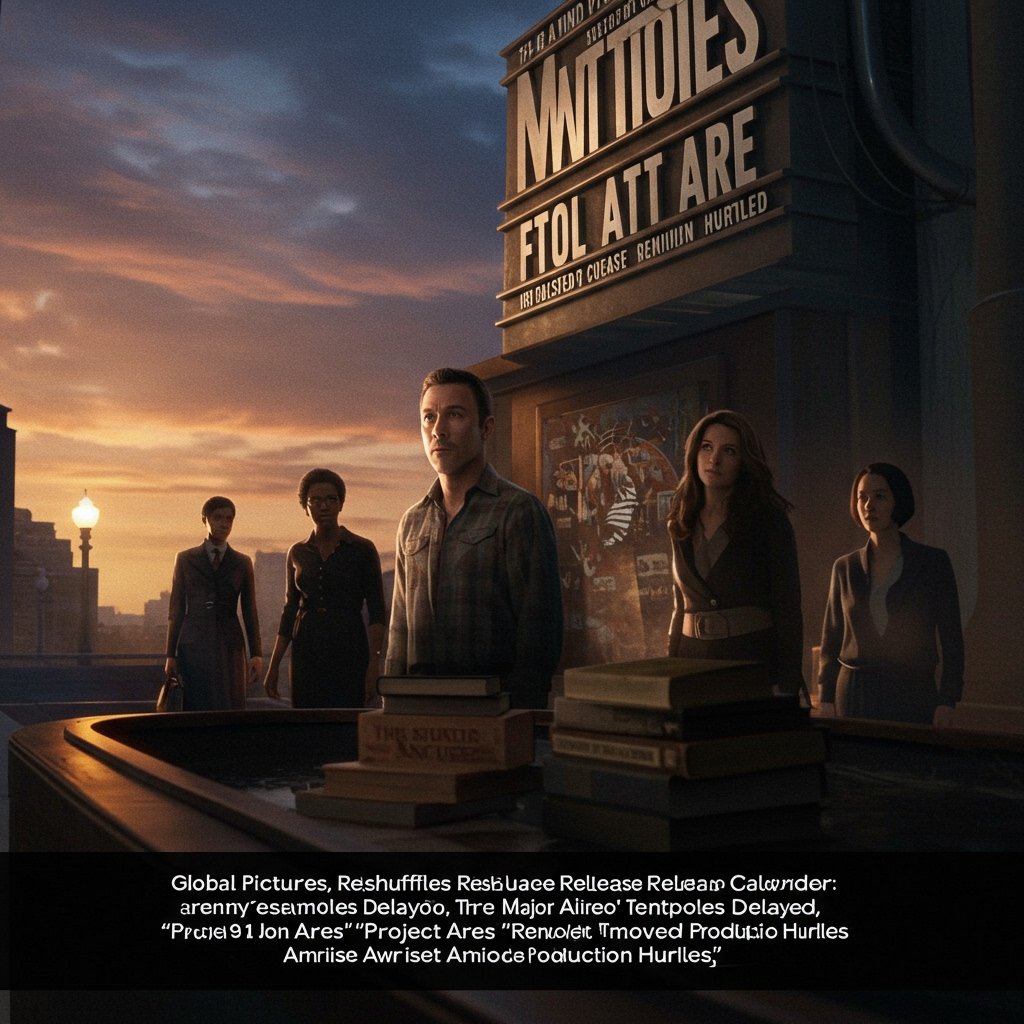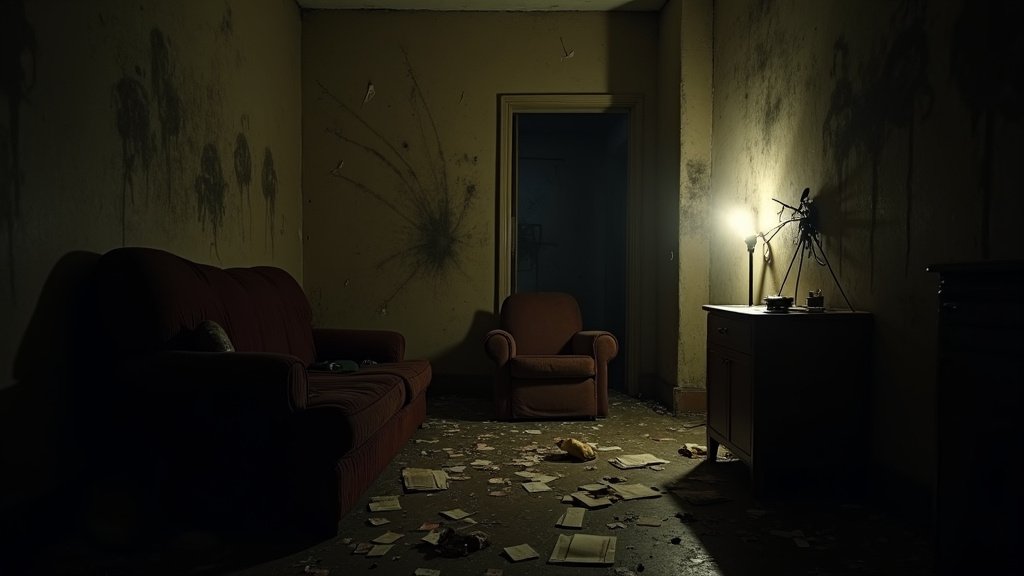Global Pictures Announces Major Slate Restructuring Amidst Production Challenges
Los Angeles, CA – Global Pictures, a leading force in cinematic production and distribution, announced a significant overhaul of its forthcoming theatrical release calendar on March 27. The studio revealed the delay of three highly anticipated major tentpole features, citing unforeseen production complexities and scheduling conflicts involving key talent. This strategic adjustment marks a notable restructuring of Global Pictures’ immediate theatrical schedule, impacting some of its most prominent upcoming titles.
During an investor call held on the same day, Global Pictures CEO Maria Sanchez addressed the reasons behind the substantial shift. Sanchez stated that while the studio remains committed to delivering high-quality cinematic experiences, unavoidable issues in the production pipeline necessitated a re-evaluation of release timelines for several key projects. The decision, though difficult, was deemed essential to ensure the creative and technical integrity of these large-scale productions.
Specific Film Delays Detailed
The most prominent film affected by the announcement is “Starfall Chronicles Part 2”, the highly anticipated sequel in the popular science fiction saga. Originally slated for a December 2025 release, the film has now been pushed back by more than six months to a new date of July 17, 2026. This delay positions the sequel as a major summer tentpole rather than a holiday release, a shift that could have implications for its box office strategy and competitive landscape.
Another significant delay involves “Oceanic Depths”, an ambitious underwater adventure project. This film was initially scheduled to hit theaters in May 2026. However, under the revised calendar, its release has been moved back nearly a full year to April 9, 2027. This substantial shift suggests particularly complex or prolonged production challenges associated with the project, potentially involving intricate visual effects or demanding location work.
Perhaps the most notable change is the fate of “Project Ares”. This film was previously set for release on August 14, 2026. In the calendar announced on March 27, “Project Ares” has been removed from the schedule entirely, with no new release date provided. This action indicates a more fundamental challenge with the project, which could range from extensive script rewrites and casting issues to a temporary halt in production or even a re-evaluation of its viability within the studio’s current strategy. Removing a film from the calendar without assigning a new date is often seen as a more serious setback than a simple delay.
Reasons Behind the Strategic Shift
CEO Maria Sanchez elaborated during the investor call that the primary drivers for these delays were “unforeseen production complexities” and “scheduling conflicts for key talent.” Unforeseen production complexities can encompass a wide array of issues inherent in large-scale filmmaking. These might include challenges with visual effects houses running behind schedule, difficulties securing or maintaining access to filming locations, technical problems with specialized equipment, or unexpected issues arising during principal photography or post-production. Given the scope and ambition of tentpole films like the ones affected, even minor setbacks in complex areas like CGI, stunt coordination, or international filming units can cascade into significant delays.
The issue of “scheduling conflicts for key talent” is equally critical. Tentpole films often rely on A-list actors, sought-after directors, and highly specialized crew members who are in high demand. If a lead actor becomes unavailable due to commitments on another project, illness, or personal reasons, it can halt or significantly slow down production. Similarly, if a director or key creative experiences scheduling overlaps, it can impact crucial phases of filmmaking, from pre-production planning to principal photography and post-production supervision. Sanchez’s comments indicate that issues related to the availability of essential personnel played a direct role in the necessity of these calendar adjustments.
Industry Context and Implications
Global Pictures’ decision comes at a time when the film industry continues to navigate a complex landscape. The lingering effects of past production shutdowns, including those related to global health events and industry-wide labor negotiations, have created backlogs and compressed schedules across the board. The intricate web of talent availability, studio production pipelines, and competition for resources means that delays in one area can easily impact others.
The reliance on tentpole films – large-budget movies expected to generate significant revenue and support the studio’s financial performance – makes their scheduling particularly sensitive. Delays in these key assets can impact a studio’s revenue projections for the affected fiscal years and influence investor confidence. By announcing these changes on March 27 during an investor call, Global Pictures was likely seeking to provide transparency and manage expectations with the financial community.
The removal of “Project Ares” from the calendar entirely is perhaps the most intriguing aspect of the announcement. While delays are relatively common in Hollywood, outright removal often signals a more fundamental issue or a strategic pivot away from the project in its current form. It remains unclear if “Project Ares” will be rescheduled at a later date, undergo significant rework, or be potentially shelved permanently. The studio offered no further details on this particular title beyond its removal from the immediate release schedule.
This strategic adjustment by Global Pictures underscores the inherent challenges in managing massive film productions. While studios aim for seamless execution, the reality of coordinating vast teams, complex technology, and sought-after talent means that unforeseen hurdles can and often do arise. The decision to delay releases, though potentially disappointing for eager audiences and impacting short-term financial forecasts, is often made in the interest of protecting the final quality of the film and ensuring a more successful eventual release.
Global Pictures’ revised schedule for “Starfall Chronicles Part 2” and “Oceanic Depths,” alongside the indefinite status of “Project Ares,” represents a significant recalibration of its immediate theatrical strategy, driven by the practical realities encountered during the production phases of these ambitious tentpoles. The industry will be watching closely to see how these shifts impact Global Pictures’ performance and future slate development.






